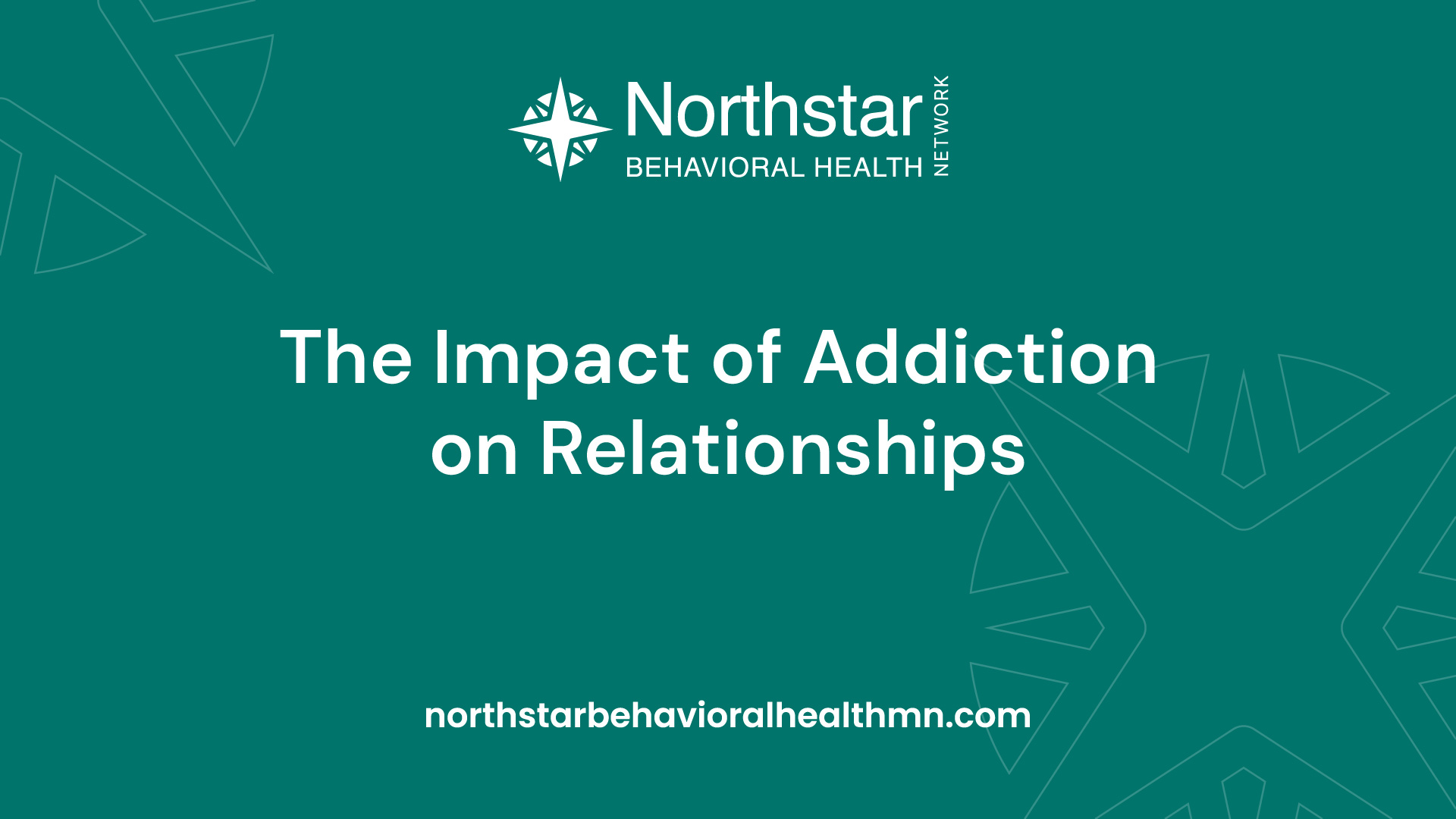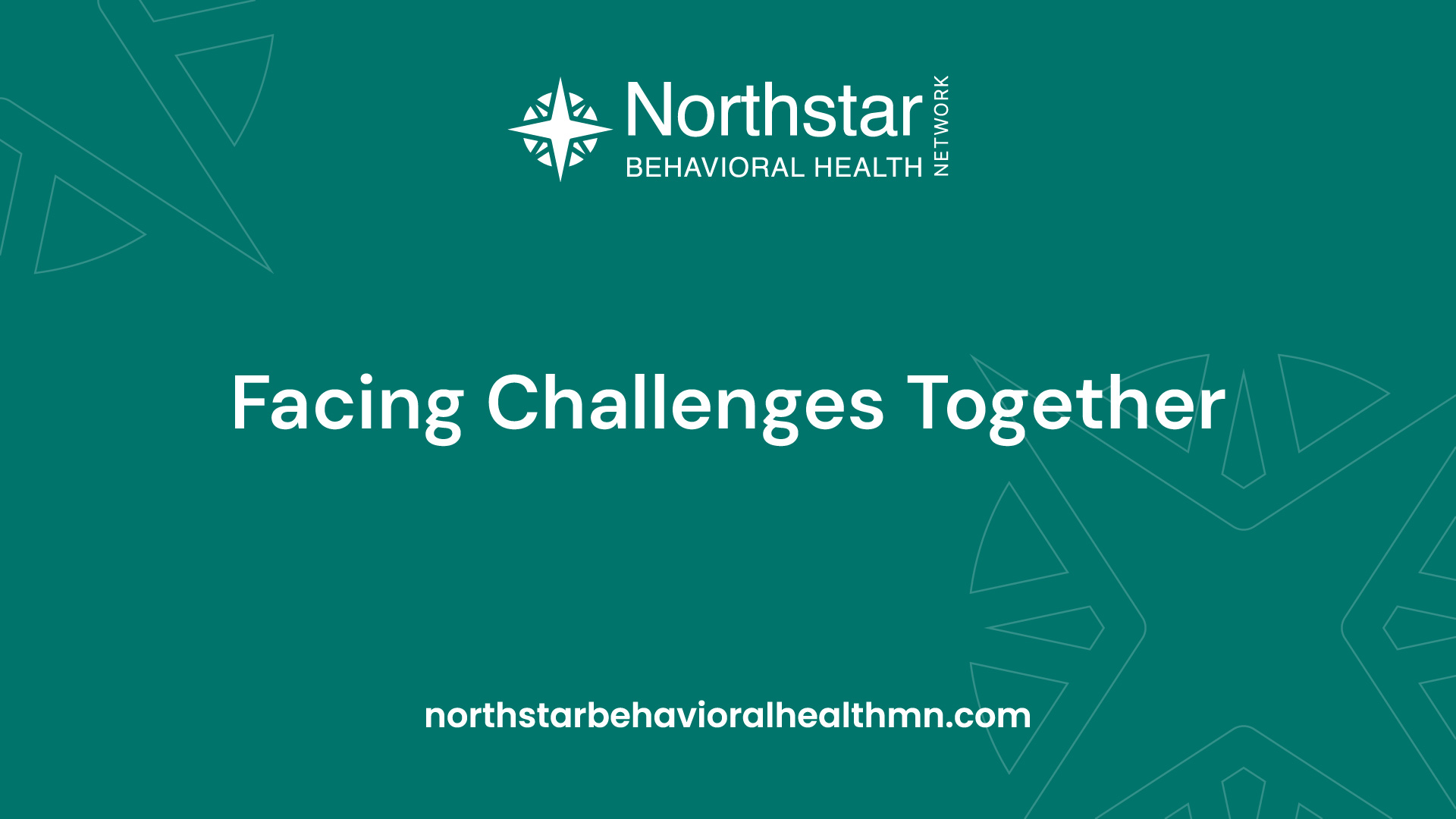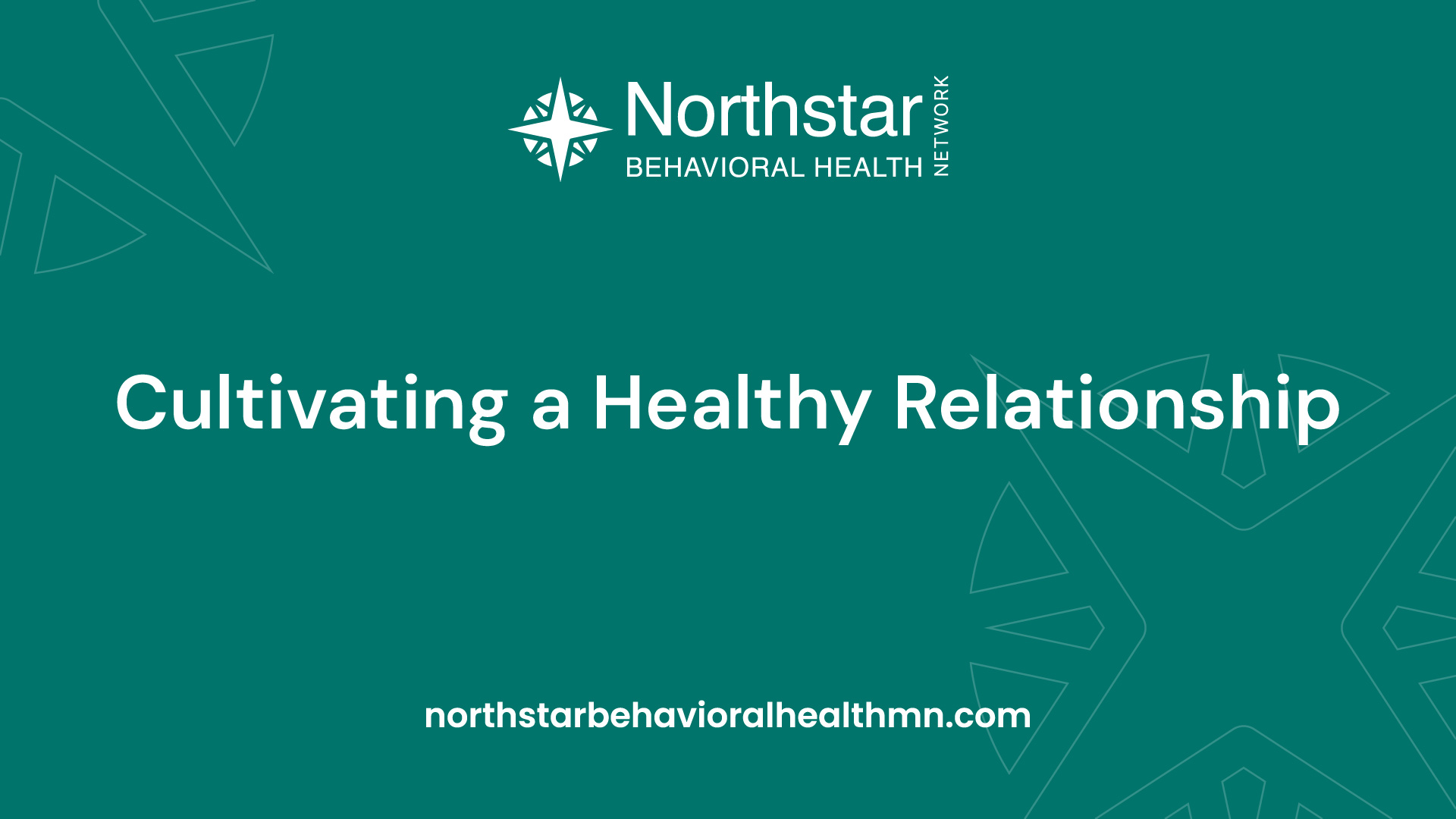August 4, 2024
Essential Knowledge For Dating An Addict
Build a healthy, trusting relationship to support recovery.


Understanding Addiction
Before entering into a relationship with someone who is struggling with addiction, it is essential to have a deep understanding of addiction itself. This understanding will help you navigate the challenges that may arise and provide the support your partner needs. In this section, we will explore the impact of addiction on relationships and the importance of empathy and understanding.
The Impact of Addiction on Relationships

Addiction can have a profound impact on relationships. It affects not only the individual struggling with addiction but also their loved ones. Trust issues, communication breakdowns, and emotional turmoil are common challenges faced by partners of those with addiction.
Addiction often consumes a person's thoughts, actions, and priorities, causing strain in relationships. It can lead to dishonesty, broken promises, and a loss of trust. The behavior associated with addiction, such as mood swings, irritability, and neglect of responsibilities, can take a toll on both partners.
It is crucial to recognize that addiction is a disease and not a personal failing. Understanding that addiction is a complex issue rooted in various factors, such as genetics, environment, and mental health, can help foster empathy and compassion.
Importance of Empathy and Understanding
Empathy and understanding are vital when dating someone with addiction. It is essential to approach your partner's struggles with empathy, putting yourself in their shoes and trying to understand their experiences and emotions. This can create a safe and supportive environment for them to open up and seek help.
Educating yourself about addiction and its effects can enhance your understanding. By learning about the signs, symptoms, and treatment options, you can develop a better grasp of what your partner is going through. This knowledge can also help you identify when professional help is needed and guide them towards seeking appropriate support.
Remember to practice self-care and set boundaries to protect your own well-being while supporting your partner. It is essential to prioritize your emotional and mental health throughout the journey.
By understanding the impact of addiction on relationships and approaching your partner's struggles with empathy and understanding, you can lay a foundation for a supportive and healthy relationship. Open communication, honesty, and seeking support and resources are crucial aspects that we will explore in the next section, Essential Knowledge for Dating an Addict.
Essential Knowledge for Dating an Addict
Dating someone who is struggling with addiction requires a deep understanding and a unique set of skills. It's important to approach the relationship with compassion, empathy, and knowledge. In this section, we will explore three essential aspects to consider when dating an addict: open communication and honesty, setting boundaries and self-care, and seeking support and resources.
Open Communication and Honesty
Open and honest communication is the foundation of any healthy relationship, especially when dating someone with addiction. It's crucial to create a safe and non-judgmental space where both partners can freely express their thoughts, concerns, and feelings. Encouraging open communication allows for a deeper understanding of each other's experiences and can foster a stronger connection.
When discussing addiction-related topics, it's important to approach the conversation with empathy and active listening. Avoid blaming or shaming language, and instead focus on expressing care and support. By maintaining open lines of communication, both partners can work together to navigate the challenges that may arise.
Setting Boundaries and Self-Care
Setting boundaries is essential when dating someone with addiction. It's important to establish clear boundaries that protect your emotional well-being and support your partner's recovery. Boundaries can include limits on behavior, expectations for sobriety, and guidelines for what is acceptable within the relationship.
Self-care is equally important when dating someone with addiction. Taking care of your own physical, emotional, and mental well-being ensures that you have the capacity to support your partner effectively. This may involve engaging in activities that bring you joy, seeking therapy or counseling, or establishing a support network of friends and loved ones. Remember, self-care is not selfish; it is necessary for maintaining a healthy relationship.
Seeking Support and Resources
Navigating the complexities of dating an addict can be challenging, and it's essential to seek support and utilize available resources. Consider joining a support group or seeking therapy together. These resources can provide guidance, understanding, and a sense of community for both partners.
Additionally, educating yourself about addiction and recovery can help you better understand your partner's journey and the challenges they may face. By learning about resources for addiction treatment, relapse prevention, and recovery support, you can actively participate in your partner's recovery process. For more information on seeking the sober life, visit our article on seek the sober life.
Remember, dating someone with addiction requires patience, understanding, and a willingness to adapt. The road to recovery is not always linear, and both partners must be prepared to face challenges together. By fostering open communication, setting healthy boundaries, and seeking support, you can build a resilient and supportive relationship while supporting your partner's journey towards sobriety.
Building Trust and Support
When dating someone who is struggling with addiction, building trust and providing emotional support are essential for maintaining a healthy and stable relationship. This section will explore two crucial aspects of dating an addict: nurturing trust in the relationship and providing emotional support.
Nurturing Trust in the Relationship
Trust is the foundation of any healthy relationship, and it becomes even more important when dating someone in recovery from addiction. Here are some key points to consider when nurturing trust in the relationship:
- Open and Honest Communication: Encourage open and honest communication with your partner. Create a safe and non-judgmental space where they feel comfortable sharing their thoughts, feelings, and struggles. Active listening and empathy play a vital role in fostering trust and understanding.
- Consistency and Reliability: Consistency is key when it comes to building trust. Be reliable and follow through with your commitments. This helps your partner feel secure and reassured in the relationship.
- Respect Boundaries: Respect your partner's boundaries and personal space. Understand that recovery is a journey and that everyone progresses at their own pace. Avoid pressuring them or rushing the process. Patience and understanding are crucial.
- Avoid Enabling Behaviors: While it's important to be supportive, it's equally important to avoid enabling behaviors that could hinder your partner's recovery. Educate yourself about healthy boundaries and seek guidance from professionals or support groups if needed.
Providing Emotional Support
Dating someone in recovery requires providing emotional support as they navigate their journey. Here are some ways you can provide support to your partner:
- Be a Listening Ear: Listen attentively and without judgment when your partner needs to talk. Show empathy and validate their feelings. Sometimes, having someone to vent to can make a world of difference.
- Educate Yourself: Take the time to educate yourself about addiction, recovery, and the challenges your partner may face. Understanding their struggles and the recovery process will help you provide better support.
- Encourage Healthy Coping Mechanisms: Encourage your partner to engage in healthy coping mechanisms, such as therapy, support groups, or hobbies that promote well-being. Offer to join them in activities that help reduce stress and promote a positive mindset.
- Celebrate Milestones and Progress: Recognize and celebrate your partner's milestones and progress along their recovery journey. It could be a month of sobriety, completing a step in their recovery program, or achieving personal goals. Your support and encouragement can be a powerful motivator.
Remember, providing emotional support doesn't mean you have to bear the entire weight of your partner's recovery on your shoulders. Encourage them to seek professional help and lean on support networks such as support groups or therapy. Together, you can navigate the challenges and lay the foundation for a healthy and fulfilling relationship.
Facing Challenges Together

When dating someone in recovery from addiction, it's important to be prepared for the challenges that may arise. Two significant challenges are dealing with relapses and developing coping strategies for both partners involved.
Dealing with Relapses
Relapse is a common occurrence in addiction recovery, and it can be a challenging experience for both the individual in recovery and their partner. It's crucial to approach relapses with understanding and support rather than judgement or blame. Here are some key points to keep in mind:
- Open Communication: Encourage open and honest communication about the relapse. Create a safe space for your partner to share their struggles and emotions without fear of judgement. Active listening and empathy can go a long way in helping them feel supported.
- Seek Professional Help: Encourage your partner to seek professional help if they have relapsed. This may involve reaching out to their therapist, counselor, or support group. Professional guidance can provide valuable insights and strategies for overcoming the challenges associated with relapse.
- Patience and Understanding: Recovery is a journey, and setbacks are a part of the process. It's important to be patient and understanding during this time. Avoid placing blame or making your partner feel guilty. Instead, focus on offering encouragement, reminding them of their progress, and reinforcing their commitment to sobriety.
Coping Strategies for Both Partners
Addiction recovery not only affects the individual in recovery but also their partner. It's essential for both partners to develop coping strategies to navigate the challenges that may arise. Here are some strategies to consider:
- Educate Yourself: Learn about addiction, its causes, and the recovery process. Understanding the nature of addiction can help you be more empathetic and supportive. Consider attending support groups or therapy sessions designed for partners of individuals in recovery.
- Self-Care: Taking care of your own physical and emotional well-being is crucial. Engage in activities that bring you joy and help you relax. Practice self-care techniques such as exercise, meditation, and spending time with loved ones. By prioritizing your own well-being, you can better support your partner.
- Establish Healthy Boundaries: Setting boundaries is essential for both partners. This may involve establishing guidelines for communication, discussing expectations, and determining what is acceptable behavior. Healthy boundaries can help maintain a supportive and stable relationship.
- Seek Support: Don't underestimate the power of support networks. Reach out to friends, family, or support groups who can provide guidance and understanding. Sharing your experiences with others who have gone through similar situations can be comforting and empowering. Check out our article on seek the sober life for more information.
By facing challenges together and developing coping strategies, you and your partner can navigate the complexities of addiction recovery. Remember, recovery is a continuous journey, and your support can play a vital role in your partner's success. Celebrate their accomplishments, no matter how small, and continue to nurture a healthy and supportive relationship.
Cultivating a Healthy Relationship

When dating someone who is in recovery from addiction, it's important to foster a healthy and supportive relationship. Cultivating mutual respect and celebrating progress and milestones are key aspects of maintaining a strong bond.
Fostering Mutual Respect
Mutual respect is the foundation of any healthy relationship, especially when dating someone in recovery. It's essential to treat your partner with dignity, understanding, and empathy. Here are some ways to foster mutual respect:
- Practice active listening: Show genuine interest in your partner's thoughts, feelings, and experiences. Listen without judgment and validate their emotions.
- Communicate openly and honestly: Encourage open communication and create a safe space for your partner to express themselves. Be honest about your own feelings and expectations.
- Acknowledge boundaries: Respect your partner's boundaries and communicate your own. Boundaries help create a sense of safety and trust within the relationship.
- Avoid stigmatizing language: Be mindful of the language you use when discussing addiction. Avoid stigmatizing terms or making assumptions about your partner based on their past.
By fostering mutual respect, you can build a strong foundation for a healthy and supportive relationship.
Celebrating Progress and Milestones
Supporting your partner in their recovery journey means celebrating their progress and milestones along the way. Recognizing and acknowledging their achievements can be incredibly motivating and reinforce their commitment to sobriety. Here are some ways to celebrate progress and milestones:
- Acknowledge small victories: Celebrate even the smallest steps forward. Whether it's a day, a week, or a month of sobriety, express your pride and support for their efforts.
- Plan special activities: Organize activities that align with your partner's interests and hobbies. It could be as simple as cooking their favorite meal or planning a day trip to a place they've always wanted to visit.
- Mark significant milestones: Celebrate important milestones, such as anniversaries of sobriety or completion of recovery programs. This shows your partner that you value their dedication and growth.
- Express appreciation: Regularly express your appreciation for your partner's commitment to their recovery. Let them know how their journey positively impacts both their life and your relationship.
By celebrating progress and milestones, you demonstrate your support and reinforce the importance of their sobriety. Remember to be genuine and considerate in your celebrations, as everyone's recovery journey is unique.
A healthy relationship built on mutual respect and celebration of milestones can provide a strong support system for someone in recovery. By fostering an environment of understanding and encouragement, you can contribute to your partner's ongoing journey towards sobriety.

.jpg)




.jpg)

